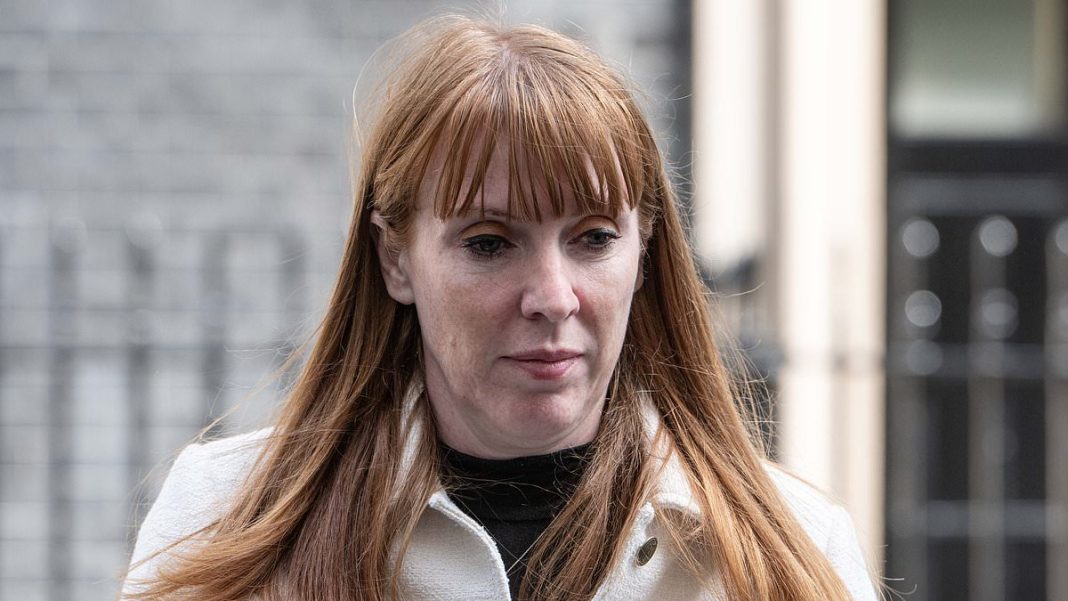Last week, the UK’s highest elected officials ruled on the most existential of questions: how we choose to die.
At its third reading, the Assisted Dying Bill passed the Commons by a slim majority of 23 votes, and now its fate lies with the Lords, where it faces a bumpy ride before it becomes law.
The upper chamber, for instance, will examine if a three-person panel of professionals (from law, psychiatry and social work) offers greater safety and oversight in approving a patient’s application to die than a High Court judge, as was originally proposed.
Peers will have at their disposal the grim cost-benefit analysis to the NHS in accelerating the deaths of the terminally ill, released last month under the cover of the local election results.
According to the report, as many as 1,300 people are expected to apply to die in the first year, saving as much as £10million in medical bills.
But can the health service cope with this demand, especially as NHS staff will be offered an opt-out from the ugly business of state-sponsored suicide?
No doubt private health providers are already bending the ears of peers for a slice of the death industry pie.
It would be tempting to allow private enterprise to take some of the strain, but I urge the Lords to look at how business seized the opportunity with morally queasy gusto in my native land, Germany, where some firms offer a ‘fast track’ service for people who can pay more and even special discounts to couples wishing to hasten their demise.
In Germany, anyone 18 or over can lawfully commit suicide with the help of a third party. Yes, anyone. There is no requirement for the person to be six months from death, nor is there any specification over having a life-limiting or debilitating illness (as in the UK Bill).
A perfectly healthy university student can seek help to kill themselves for no better reason than they are fed up with life.
Hannelore Kring, 83, is typical of Germany’s liberal approach to assisted suicide. A recording of her death featured in a podcast by news broadcaster WDR and it is a spine-chilling reminder of how relaxed my countrymen are about dying.
At an undertaker’s, Frau Kring is accompanied by two ‘death helpers’ – a nurse and retired teacher – and sounds relieved her life will end in a matter of minutes.
Dressed in black and with make-up, as if attending a party, she suggests a dance with the nurse. Indeed, she is not ill, she is as healthy as anyone in their 80s.
She has run a second-hand men’s boutique in Hamburg but feels life’s no longer worth living. She’s lonely, all her friends have died and the state of the world depresses her.
The helpers ask if she really wants to go through with it. ‘Absolutely!’ she replies enthusiastically.
The nurse hooks her up to an infusion of a lethal dose of narcotics – a ‘suicide cocktail’.
She merely has to turn a valve, letting the toxic chemicals enter her bloodstream, putting her to sleep for ever.
It’s important she takes the final step herself, otherwise the helpers could be charged with manslaughter.
Assisted suicides like this have been fully legal in Germany since 2020, although legislation has been a generation in the making.
After the Second World War the subject was largely taboo, in no small part due to revulsion at the Nazis’ Aktion T4 programme, which entailed the ‘mercy killing’ of 300,000 disabled people.
By the 1970s and 1980s, a push for more patient autonomy led to court decisions in 1984 and 1990 that ensured suffering, bed-ridden people had the right to stop treatments that prolonged their lives.
With the 2009 Patient Directive Law, people could include such instructions in a living will if they became incapacitated. This gave legal protections to doctors offering assisted suicide.
But then the public grew uneasy at what seemed a creeping commercialisation of the right to die.
Healthcare is not free at the point of use in Germany, so the nation is more comfortable than the UK with private provision within the system. But only up to a point.
Many were appalled in 2014 when a Berlin urologist Uwe-Christian Arnold revealed he had helped ‘several hundred people’ take their lives since the late 1990s for fees of up to €10,000.
Christian groups accused him of undermining the sanctity of life. The German Medical Association threatened him with a €50,000 fine, saying doctors should prolong life, not give their patients lethal poisons. Arnold took them to court over the fine and won.
Also in 2014, a right-to-die association in Hamburg caused uproar for offering fast-track assisted suicide consultations in exchange for higher membership fees.
Its normal rate was €2,000, with a waiting time of a year, but it introduced a jump-the-queue service for €7,000. Other providers offered discounts for couples interested in dying together.
These were grisly bargains that lead many to regard Germany as a Las Vegas of suicide, which was anathema to a country that saw itself as otherwise Christian and conservative. Church groups took to Berlin’s streets as legislators sought to crack down on the industry.
Arnold and others passionately defended their businesses. The ‘death helpers’ argued the issue was comparable to abortion: a ban would be unfair to the terminally ill, who shouldn’t have to travel to places like Switzerland to end their lives with dignity.
The debate ended with parliament banning ‘commercial’ assisted suicide under Chancellor Angela Merkel in 2015.
Subsequently, only friends and relatives who received no money for their assistance could help someone end their life. Legal challenges were launched by right-to-die advocates and people suffering terminal illnesses.
In a 2020 judgement, the Constitutional Court said the freedoms enshrined in the country’s post-war constitution meant ‘the decision to take one’s own life must be respected by the state as an act of personal autonomy’.
Those who had been put out of work by the previous ruling were free to ply their trade once again.
Five years after that decision, it feels like we’re back to the Wild West of pre-2015. Assisted suicide in Germany is an unregulated free-for-all. A slew of undertakers, lawyers and independent doctors are facilitating a rising toll of assisted deaths. Last year it was about 1,000, though no one is keeping exact figures.
Likewise there’s no central registry of providers. Nearly anyone can set up shop.
The largest player in the business is the German Association for Humane Dying (DGHS), which charges €4,000 a suicide but offers a discounted €6,000 for couples. It says that of the 623 people for whom it arranged suicide last year (it forwards requests to independent teams of doctors and lawyers), 22 per cent were just ‘fed up with life’.
Two-thirds were female. DGHS spokesperson Wega Wetzel says: ‘Women are more likely to be widowed and “left over” than men. Women are more likely to plan and communicate, while men often choose “hard” suicide methods such as hanging.’
Equally worrying is the fact that nothing prevents young people from choosing the path of assisted suicide. The youngest case I heard of was a 21-year-old man.
The only requirement spelled out by the court was that the person be ‘freely responsible’ for their decision.
At least DGHS, to maintain its reputation, has doctors and lawyers screen applicants to ensure they understand what they’re getting into, that they’re not being coerced and that they do not show symptoms of mental illness or dementia.
But nobody knows how many independent providers are making money with assisted suicide. Nobody knows how they are screening clients, particularly in the more affordable services where standards may be lower.
A study last month in the British Medical Journal analysed 77 assisted suicides in Munich. It found that one patient’s consultation with a clinic lasted 55 minutes and the death was booked for the next day.
The assisting physician in another case was a relative of the patient. In a 2022 case, the suicidal person was judged of sound mind based on a five-year-old mental capacity evaluation.
But there is still broad support for the right to die: 80 per cent of Germans feel it’s appropriate for the critically ill. But just 30 per cent say it should be available to people with a long life ahead of them, and only 3 per cent for young people having a crisis.
Ute Lewitzska, professor for suicide studies at Frankfurt University, sees a fundamental change in how we deal with growing old. ‘Supply creates demand,’ she says. ‘The 2020 court decision didn’t just open a crack in the door, it flung the door wide open – and we’re not going to be able to close that door again.’
The fear is a normalisation of assisted suicide. For some it’s a humane way to end one’s life; for others it’s an easy solution to suffering that’s being oversold.
Dr Lukas Radbruch, director of palliative care at University Clinic Bonn, has worked with end-of-life patients for three decades.
He says many more now ask about assisted suicide but ‘so many people are not sufficiently informed. Or we have doubts about how voluntary their choice is. Or we realise they still want to live, even if they say they want to die.’
Sometimes a suicidal person needs counselling, not the means to kill themselves. Where do you draw the line? Dr Radbruch asks.
In 2023 the German parliament tried to hammer out rules to provide clearer guidance, but MPs couldn’t reach a consensus.
Like many in the West, Germany seems destined to grope its way through this ethical minefield with no transparent way forward that is satisfactory for all.
I do not envy the task ahead for Britain’s Lords. My country’s experience offers a salutary lesson that for the Bill to become law, they must make black and white what is a painfully grey issue.






